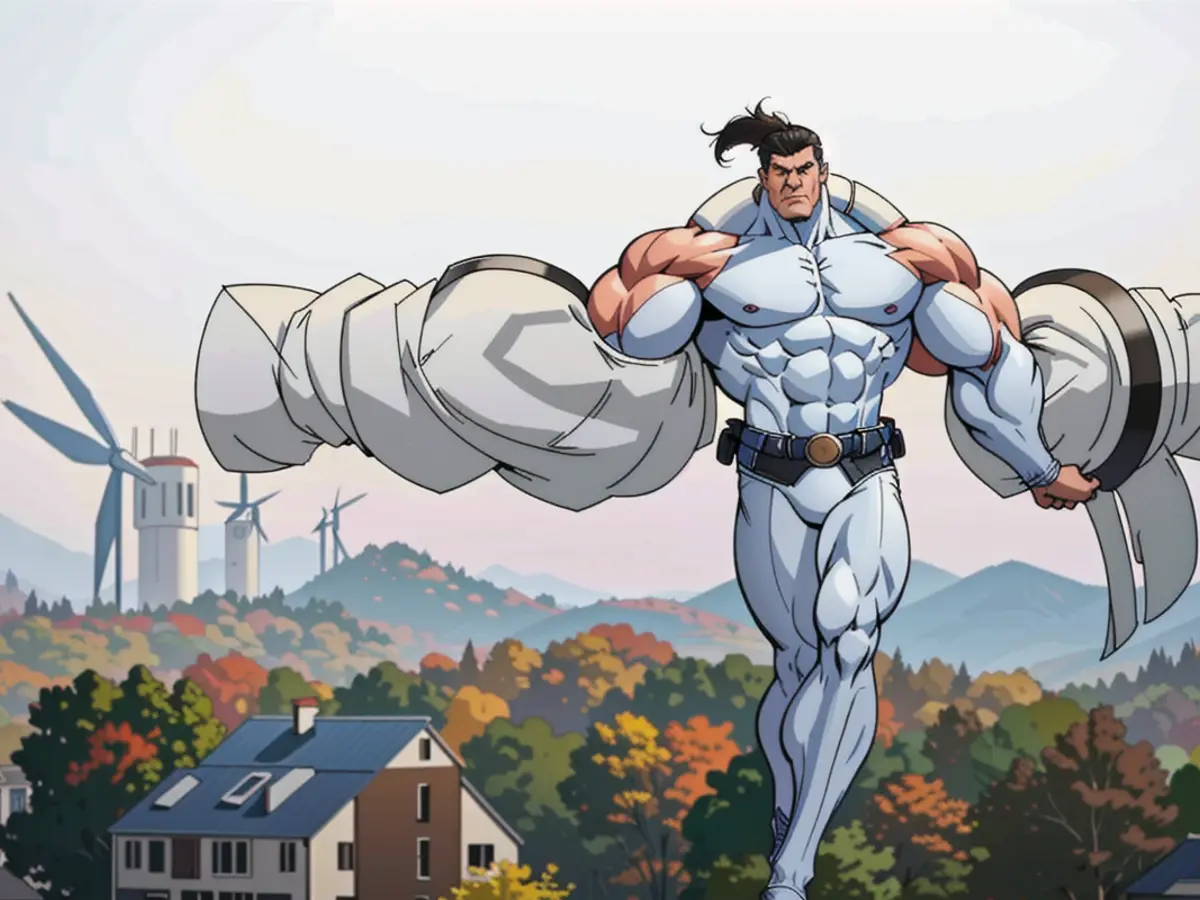The potential threat posed by the mysterious dark flute.
The sun isn't shining, there's no breeze blowing. Critics of renewable energy see this as an opportunity: The output of solar and wind energy plants is drastically decreasing. As a result, electricity prices are unexpectedly surging.
Germany is experiencing prolonged darkness during winter nights, which is normal - but the lack of wind throughout the country is problematic. This leads to what is known as "dark doldrums", periods when solar energy production significantly drops and wind energy is almost non-existent due to the weather conditions. Consequently, electricity prices on the stock market can spike. This happened recently when the day-ahead electricity price reached over 900 euros per megawatt hour, but has since dropped to around 100 euros.
Private consumers are shielded from these fluctuations by their long-term contracts with energy suppliers. However, this is not the case for large corporations. They purchase electricity on a short-term basis and suddenly face peak prices.
In such situations, coal and gas power plants are required to supplement renewable energy production. Their electricity production is more expensive, and additional electricity must be imported, which drives up prices further. Moreover, colder temperatures increase the demand for electricity.
Fraunhofer Institute energy expert Bruno Burger, in an interview with ntv, stated that renewable energy sources account for around 65 percent of electricity generation and 56 percent of consumption during the year. However, he raises concerns about the upcoming shutdown of power plants in Germany, which will only worsen the situation during "dark doldrums". The ruling coalition, in pursuit of its nuclear and coal power phase-out agendas, had advocated for this.
Yet, Burger doesn't fear a potential winter electricity shortage. He notes that the peak consumption during winter is around 75 gigawatts, but Germany has approximately 100 gigawatts of installed power plant capacity even when there's no wind or sun. Some power plants also remain in reserve.
The Federal Economics Minister, Robert Habeck, introduced legislation to promote the construction of gas power plants with government funding. These plants were intended to cover winter electricity demand when renewable energy fails. However, after the fall of the ruling coalition, these plans were scrapped.
On the other hand, Burger mentions that there can also be instances with an excess of electricity production - especially when the sun is shining brightly and the wind is strong. In such cases, electricity prices can turn negative. Producers are then not only paid nothing for the electricity they feed into the grid but must pay for it. On the contrary, large consumers are remunerated for every kilowatt hour they consume.
In response to the lack of wind and decreased solar energy production, Germany faces periods of "dark doldrums," where energy from wind becomes almost non-existent. Consequently, large corporations, who buy electricity on a short-term basis, may face higher costs due to the surge in electricity prices caused by the scarcity of renewable energy sources.







